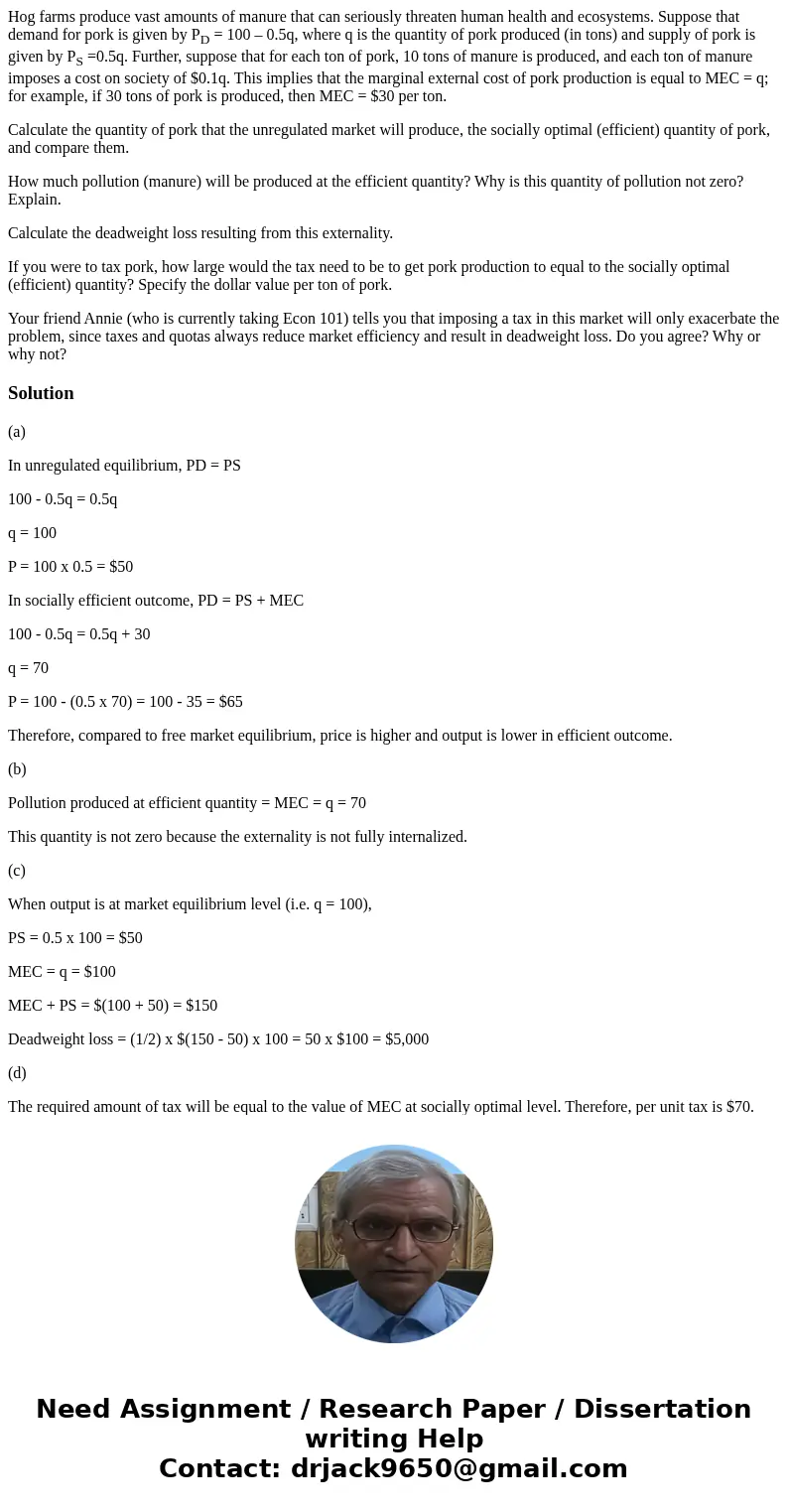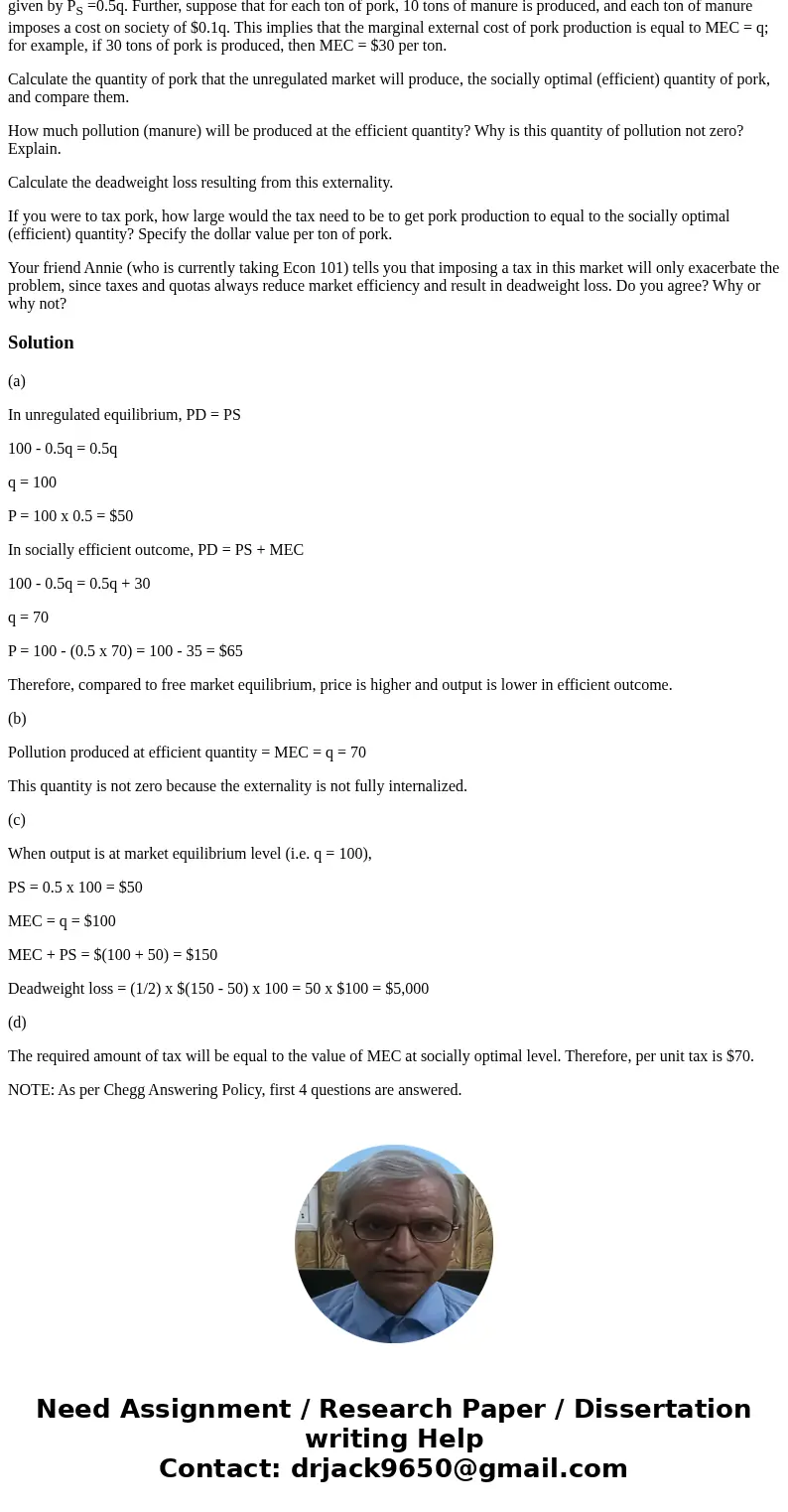Hog farms produce vast amounts of manure that can seriously
Hog farms produce vast amounts of manure that can seriously threaten human health and ecosystems. Suppose that demand for pork is given by PD = 100 – 0.5q, where q is the quantity of pork produced (in tons) and supply of pork is given by PS =0.5q. Further, suppose that for each ton of pork, 10 tons of manure is produced, and each ton of manure imposes a cost on society of $0.1q. This implies that the marginal external cost of pork production is equal to MEC = q; for example, if 30 tons of pork is produced, then MEC = $30 per ton.
Calculate the quantity of pork that the unregulated market will produce, the socially optimal (efficient) quantity of pork, and compare them.
How much pollution (manure) will be produced at the efficient quantity? Why is this quantity of pollution not zero? Explain.
Calculate the deadweight loss resulting from this externality.
If you were to tax pork, how large would the tax need to be to get pork production to equal to the socially optimal (efficient) quantity? Specify the dollar value per ton of pork.
Your friend Annie (who is currently taking Econ 101) tells you that imposing a tax in this market will only exacerbate the problem, since taxes and quotas always reduce market efficiency and result in deadweight loss. Do you agree? Why or why not?
Solution
(a)
In unregulated equilibrium, PD = PS
100 - 0.5q = 0.5q
q = 100
P = 100 x 0.5 = $50
In socially efficient outcome, PD = PS + MEC
100 - 0.5q = 0.5q + 30
q = 70
P = 100 - (0.5 x 70) = 100 - 35 = $65
Therefore, compared to free market equilibrium, price is higher and output is lower in efficient outcome.
(b)
Pollution produced at efficient quantity = MEC = q = 70
This quantity is not zero because the externality is not fully internalized.
(c)
When output is at market equilibrium level (i.e. q = 100),
PS = 0.5 x 100 = $50
MEC = q = $100
MEC + PS = $(100 + 50) = $150
Deadweight loss = (1/2) x $(150 - 50) x 100 = 50 x $100 = $5,000
(d)
The required amount of tax will be equal to the value of MEC at socially optimal level. Therefore, per unit tax is $70.
NOTE: As per Chegg Answering Policy, first 4 questions are answered.


 Homework Sourse
Homework Sourse